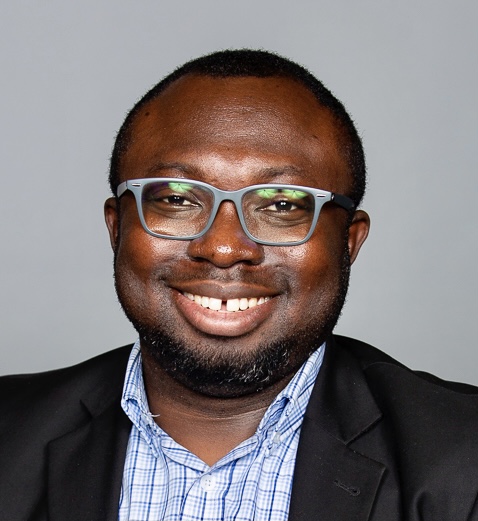Convocation Spotlight: Rehabilitation Science PhD Graduate Andrews Tawiah
10 June 2022

While working towards his PhD in Rehabilitation Science, Andrews Tawiah also enjoyed his role at the University of Alberta’s Career Centre, providing career advice and job-search support to other graduate and postdoctoral students. Wherever the future takes him, Tawiah aims to continue supporting students’ career journeys while pursuing his academic and research interests.
What are you most proud of from your time in the program?
During my program, I contributed to the advanced physiotherapy practice policy statement developed by World Physiotherapy, a global organization that represents more than 600,000 physiotherapists. I also teamed up with international experts to write a book chapter on advanced practice physiotherapy. I was a founding member of the Black Graduate Students' Association and the inaugural vice-president (professional development). As a career peer educator at the U of A Career Centre, I support over 100 students with career advising including resumes, cover letters and mock interviews.
What was the biggest challenge you faced?
I had challenges securing funding, especially after the university-wide budget cuts. I wasn't successful with my application for external awards but got internal awards and support from my supervisors.
What initially drew you to this area of study?
After my master's degree in the U.K., I was very curious about why advanced physiotherapy practice (a level of clinical practice where physiotherapists make complex decisions and manage risk in unpredictable contexts using advanced clinical reasoning) is not widely accepted. This was due to my drive to support patient care through developing and implementing advanced practice physiotherapy models of care. I decided to further pursue a PhD to continue researching this area.
What lessons will you take from pursuing a degree during the pandemic?
That we can quickly pivot to virtual learning and virtual support of graduate students. Pre-pandemic, the idea of virtual support for graduate students wasn't ideal. However, the pandemic improved our understanding and the resources available to support a virtual learning environment. Additionally, I taught a course on telerehabilitation, which introduced students to the basic concepts of telerehab (the delivery of rehabilitation services over telecommunication networks and the internet). One aspect of the course was a series of guest lectures from clinicians who had implemented telerehab in their practice.
What comes next in your career?
Inspired by my work at the Career Centre, I want to carve a career path where I can combine academia and career management. I believe there are lots of things we can do to support students through their studies and transition into careers.